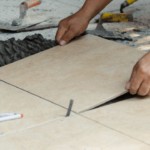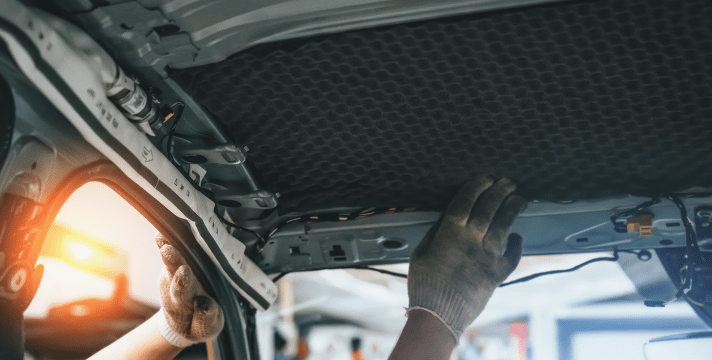Soundproofing a car is a popular consideration for many vehicle owners who want to enjoy a quieter and more comfortable driving experience.
क्या है ब्रह्मचर्य? जाने ब्रह्मचर्य का सम्पूर्ण ज्ञान
Whether you’re looking to reduce road noise, engine vibrations, or external disturbances, soundproofing techniques can indeed make a noticeable difference.
Let’s explore how soundproofing a car works and the various methods you can use to achieve a quieter ride.
How Soundproofing Works for Cars
Soundproofing a car involves the application of materials that absorb, dampen, or block sound waves.
The goal is to minimize the transmission of noise from various sources, such as the road, engine, wind, and other vehicles.
Soundproofing materials work by transforming sound energy into heat energy or by creating barriers that prevent sound waves from traveling.
Methods of Soundproofing a Car
There are several methods you can use to soundproof your car, each targeting different sources of noise. Here are some effective techniques:
1. Soundproofing Insulation:
Adding soundproofing insulation materials to the interior of your car can help absorb and dampen vibrations and noise.
These materials are often placed in areas such as the doors, floors, and roof. Common insulation materials include mass-loaded vinyl, foam panels, and specialized automotive insulation products.
2. Soundproofing Mats:
Soundproofing mats are adhesive sheets that can be applied to various surfaces in your car. These mats are designed to reduce vibrations and airborne noise.
They are often used on the interior of doors, the floor, and the trunk to minimize road noise and engine sounds.
3. Acoustic Foams:
Acoustic foams are specialized foam panels designed to absorb sound waves. They are commonly used on the interior roof of a car to reduce echoing and high-frequency noise. Acoustic foams can be customized to fit the contours of your car’s interior.
4. Weatherstripping and Sealing:
Gaps and openings in your car can allow external noise to enter. Applying weatherstripping and seals to doors, windows, and other openings can help create a tighter barrier against noise intrusion.
5. Engine Bay Insulation:
To minimize engine noise entering the cabin, you can install insulation materials in the engine bay. These materials help absorb and dampen the vibrations and sounds produced by the engine.
6. Upgrading Tires and Wheel Wells:
Road noise can be significantly reduced by upgrading to quieter tires and using wheel well liners. Quieter tires produce less road noise, while wheel well liners help deflect road noise away from the cabin.
Benefits of Soundproofing a Car
Soundproofing your car can offer a range of benefits, including:
- Reduced Noise: The primary benefit is a quieter and more comfortable driving experience. You’ll be able to enjoy conversations, music, and phone calls without the distraction of excessive noise.
- Improved Audio Quality: Soundproofing can enhance the quality of your car’s audio system. With reduced background noise, you’ll be able to hear music and phone calls more clearly.
- Enhanced Resale Value: A car that is well-insulated and provides a quiet ride may have a higher resale value, as potential buyers often appreciate a comfortable driving experience.
Conclusion: A Quieter Ride Awaits
Soundproofing a car is indeed effective and can significantly reduce the impact of road noise, engine vibrations, and external disturbances.
By applying soundproofing materials strategically and targeting different sources of noise, you can create a more serene and enjoyable driving environment.
Whether you’re embarking on long road trips or simply commuting to work, the benefits of a quieter ride await when you invest in soundproofing techniques.










